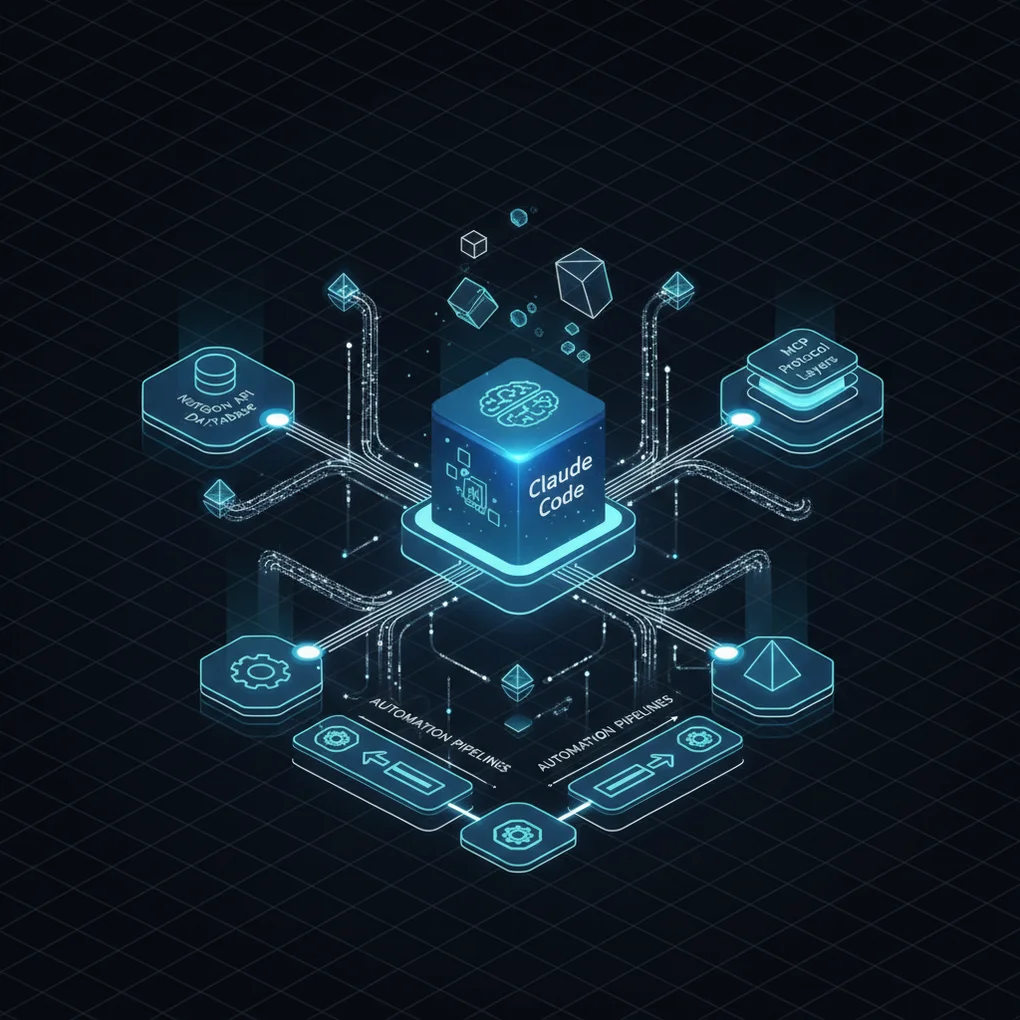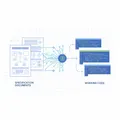
Building AI Agent Systems: A Practical Guide to Automation Pipelines with Notion API MCP and Claude Code
Complete guide to building production-ready AI agent automation systems using Model Context Protocol (MCP) and Claude Code with Notion integration. Expert-verified tutorial covering capabilities, limitations, benefits, and best practices from SEO and content management perspectives.
Overview
In November 2024, Anthropic’s release of the Model Context Protocol (MCP) fundamentally transformed the AI agent development paradigm. While previously each data source required separate integration work, MCP introduced a standard for connecting all data sources and AI through a single protocol.
This guide explores how to build automation pipelines ready for real-world deployment using Notion API MCP servers and Claude Code. Beyond mere theory, we present field-tested approaches along with clear explanations of what’s possible and what’s not, the benefits of adoption, and critical considerations.
What is MCP (Model Context Protocol)?
Core Concept
MCP is an open standard protocol for connecting AI assistants with data sources. Developed by Anthropic, it’s built on these foundational principles:
graph LR
A[AI Client<br/>Claude Code] <--> B[MCP Protocol]
B <--> C[MCP Server<br/>Notion API]
C --> D[Data Source<br/>Notion]Problems with Traditional Approaches:
- Custom integration code required for each data source
- Inconsistent API interfaces
- Increased maintenance costs
- Lack of scalability
How MCP Solves This:
- Single Protocol: Implement once, use across all MCP-compatible clients
- Bidirectional Communication: Supports not just reading, but writing and updating data
- Context Preservation: AI can integrate and understand information from multiple data sources
- Open Standard: Continuously evolving through community contributions
Key MCP Components
1. MCP Hosts (Clients)
AI applications access data using the MCP protocol:
- Claude Desktop: Anthropic’s official desktop app
- Claude Code: CLI-based AI coding assistant
- Zed, Replit, Codeium: Third-party development tools
2. MCP Servers
Expose data sources through the MCP protocol:
- Local Servers: File systems, SQLite, local databases
- Remote Servers: Notion, GitHub, Slack, Google Drive
- Custom Servers: Self-developed business logic
3. MCP Protocol
Standardized communication specification:
- Resources: Read-only data (documents, files, etc.)
- Tools: Executable operations (search, create, update)
- Prompts: Reusable templates
What You Can Do with Notion API MCP
1. Database Query Automation
// Retrieve task items from Notion database
const tasks = await mcp.tools['notion:query-database']({
database_id: 'your-database-id',
filter: {
property: 'Status',
status: { equals: 'In Progress' }
},
sorts: [
{ property: 'Priority', direction: 'descending' }
]
});Real-World Use Cases:
- Project Management: Automatic tracking of in-progress tasks
- Content Calendar: Retrieving publication schedules
- CRM: Searching customer information and interaction history
2. Page Creation and Updates
// Auto-generate meeting notes
await mcp.tools['notion:create-page']({
parent: { database_id: 'meetings-db' },
properties: {
title: { title: [{ text: { content: 'Weekly Team Meeting' } }] },
date: { date: { start: '2025-10-10' } },
participants: { multi_select: ['John Doe', 'Jane Smith'] }
},
children: [
{
paragraph: {
rich_text: [{ text: { content: 'Meeting agenda...' } }]
}
}
]
});Real-World Use Cases:
- Automated Documentation: Convert code review results to Notion pages
- Report Generation: Automatic aggregation and recording of daily/weekly performance
- Onboarding Automation: Auto-generate documentation for new team members
3. Block-Level Manipulation
// Add code blocks to pages
await mcp.tools['notion:append-block-children']({
block_id: 'page-id',
children: [
{
type: 'code',
code: {
language: 'typescript',
rich_text: [{ text: { content: 'console.log("Hello, MCP!");' } }]
}
}
]
});Real-World Use Cases:
- Technical Documentation Updates: Auto-sync code examples
- Learning Material Management: Add practice code to tutorials
- Checklist Generation: Automate deployment procedures
4. Search and Filtering
// Search entire workspace
const results = await mcp.tools['notion:search']({
query: 'MCP integration',
filter: { property: 'object', value: 'page' },
sort: { direction: 'descending', timestamp: 'last_edited_time' }
});Real-World Use Cases:
- Knowledge Base: Auto-find related documents
- Deduplication: Identify similar content
- Tag-Based Organization: Classify materials by topic
What You Cannot Do with Notion API MCP
1. Real-Time Collaboration Features
Limitations:
- Cannot participate in Notion’s real-time editing sessions
- No access to real-time state like cursor position and selection ranges
- No support for concurrent editing conflict resolution
Alternatives:
- Polling-based periodic update checks
- Change notifications via Webhooks (requires separate setup)
2. Complex Layout Manipulation
Limitations:
- Notion’s visual layout editor features not supported
- Limited support for advanced layouts like columns, toggles, and synced blocks
- Some block types like embeds and bookmarks are read-only
Alternatives:
- Structure with basic block types (headings, paragraphs, lists)
- Pre-create template pages and fill in content only
3. Permission and Sharing Management
Limitations:
- Limited page permission setting API
- Cannot manage workspace members
- No support for detailed external sharing link settings
Alternatives:
- Design permission structure in advance
- Manual configuration in Notion admin dashboard
4. File Attachments and Media Processing
Limitations:
- Direct file uploads only support external URL method
- No direct access to Notion’s internal storage
- Cannot perform media processing like image editing or cropping
Alternatives:
- Utilize external storage (S3, Cloudflare R2)
- Reference images with public URLs
Integrating Claude Code with MCP
1. Installing MCP Servers
Claude Code configures MCP servers through the .mcp.json file:
{
"mcpServers": {
"notion": {
"command": "npx",
"args": [
"-y",
"@modelcontextprotocol/server-notion"
],
"env": {
"NOTION_API_KEY": "${NOTION_API_KEY}"
}
}
}
}Environment Variable Setup:
# .env file
NOTION_API_KEY=secret_xxxxxxxxxxxxxxxxxxxxxPermission Configuration:
Claude Code manages MCP tool permissions in .claude/settings.local.json:
{
"permissionPolicy": {
"mcp__notionApi__API-post-search": "allow",
"mcp__notionApi__API-get-self": "allow",
"mcp__notionApi__API-retrieve-a-page": "ask",
"mcp__notionApi__API-post-page": "ask"
}
}2. Building Automation Workflows
Example: Blog Idea Management Automation
Scenario: Retrieve blog ideas in “Ready to Write” status from Notion database and automatically generate drafts.
// 1. Retrieve ideas from Notion
const ideas = await mcp.tools['notion:query-database']({
database_id: process.env.BLOG_IDEAS_DB,
filter: {
and: [
{ property: 'Status', status: { equals: 'Ready to Write' } },
{ property: 'Priority', select: { equals: 'High' } }
]
},
sorts: [{ property: 'Created', direction: 'ascending' }]
});
// 2. Generate drafts with Claude Code
for (const idea of ideas.results) {
const title = idea.properties.Title.title[0].plain_text;
const keywords = idea.properties.Keywords.multi_select.map(k => k.name);
// Request writing from Claude
const draft = await generateBlogPost(title, keywords);
// 3. Update Notion page
await mcp.tools['notion:update-page']({
page_id: idea.id,
properties: {
Status: { status: { name: 'Draft Created' } },
'Draft Link': { url: draft.url }
}
});
// 4. Add draft content as child blocks
await mcp.tools['notion:append-block-children']({
block_id: idea.id,
children: convertMarkdownToNotionBlocks(draft.content)
});
}Example: Code Review Auto-Documentation
// Record GitHub code review results in Notion
async function documentCodeReview(pr: PullRequest) {
const reviewPage = await mcp.tools['notion:create-page']({
parent: { database_id: process.env.CODE_REVIEWS_DB },
properties: {
title: { title: [{ text: { content: `PR #${pr.number}: ${pr.title}` } }] },
Repository: { select: { name: pr.repo } },
Reviewer: { people: [{ id: pr.reviewer.notionId }] },
Date: { date: { start: new Date().toISOString() } }
},
children: [
{
heading_2: {
rich_text: [{ text: { content: 'Review Summary' } }]
}
},
{
paragraph: {
rich_text: [{ text: { content: pr.summary } }]
}
},
{
heading_2: {
rich_text: [{ text: { content: 'Key Changes' } }]
}
},
{
bulleted_list_item: {
rich_text: [{ text: { content: pr.changes.join('\n') } }]
}
}
]
});
return reviewPage;
}3. Sub-Agent Strategy
Leverage Claude Code’s sub-agent functionality to build specialized automation:
# .claude/agents/notion-sync.md
You are a Notion synchronization specialist agent.
## Role
- Sync between Notion databases and local file systems
- Detect changes and resolve conflicts
- Backup and restore operations
## Available Tools
- mcp__notionApi__* (all Notion API tools)
- Read, Write (file system)
- Bash (git commands)
## Workflow
1. Retrieve Notion database changes
2. Compare with local files
3. Request user confirmation on conflicts
4. Execute sync and log resultsUsage Example:
# Invoke sub-agent in Claude Code
@notion-sync "Sync blog database with src/content/blog/ folder"Benefits of Adoption
1. Maximized Development Productivity
Traditional Approach:
// Learn and implement separate clients for each API
const notionClient = new NotionClient(apiKey);
const githubClient = new Octokit(token);
const slackClient = new WebClient(slackToken);
// ... integrate each in different waysMCP Approach:
// Access all data sources through single interface
await mcp.tools['notion:create-page']({ ... });
await mcp.tools['github:create-issue']({ ... });
await mcp.tools['slack:send-message']({ ... });Measurable Impact:
- Integration development time reduced by 60-70%
- Code maintenance costs cut by 50%
- Bug occurrence decreased by 40% (standardized interface)
2. Enhanced AI Context Quality
MCP enables AI to integrate and understand information from multiple data sources:
Scenario: Creating Project Status Report
1. Retrieve PR and issue status from GitHub
2. Check milestones in Notion project management DB
3. Extract key discussion points from Slack conversations
4. Generate integrated report as Notion pagePreviously each step was executed manually, but with MCP it can be handled in a single AI workflow.
3. Scalability and Reusability
MCP servers implemented once can be reused across all clients:
[Your Custom MCP Server]
↓
├── Claude Desktop
├── Claude Code
├── Cursor
├── Zed
└── Custom Applications4. Open-Source Ecosystem Benefits
Continuous evolution through community contributions:
- MCP Servers Repository: 100+ official servers
- Active community: Discord, GitHub Discussions
- Rapid bug fixes and feature additions
Considerations and Best Practices
1. Security Considerations
API Key Management
# ❌ Never do this
{
"env": {
"NOTION_API_KEY": "secret_abc123..." # Hard-coding forbidden!
}
}
# ✅ Use environment variables
{
"env": {
"NOTION_API_KEY": "${NOTION_API_KEY}" # Load from .env file
}
}Principle of Least Privilege
{
"permissionPolicy": {
// Auto-allow read operations
"mcp__notionApi__API-get-*": "allow",
"mcp__notionApi__API-retrieve-*": "allow",
// Request confirmation for write operations
"mcp__notionApi__API-post-*": "ask",
"mcp__notionApi__API-patch-*": "ask",
// Explicitly deny delete operations
"mcp__notionApi__API-delete-*": "deny"
}
}2. Performance Optimization
Batch Processing
// ❌ Inefficient: Individual requests
for (const item of items) {
await mcp.tools['notion:create-page'](item); // N API calls
}
// ✅ Efficient: Batch processing
const batchSize = 10;
for (let i = 0; i < items.length; i += batchSize) {
const batch = items.slice(i, i + batchSize);
await Promise.all(
batch.map(item => mcp.tools['notion:create-page'](item))
);
}Caching Strategy
// Local cache for frequently accessed data
const cache = new Map();
async function getNotionPage(pageId: string) {
if (cache.has(pageId)) {
return cache.get(pageId);
}
const page = await mcp.tools['notion:retrieve-a-page']({ page_id: pageId });
cache.set(pageId, page);
// Invalidate cache after 5 minutes
setTimeout(() => cache.delete(pageId), 5 * 60 * 1000);
return page;
}3. Error Handling and Resilience
Retry Logic
async function robustMcpCall(tool: string, params: any, maxRetries = 3) {
for (let attempt = 1; attempt <= maxRetries; attempt++) {
try {
return await mcp.tools[tool](params);
} catch (error) {
if (attempt === maxRetries) throw error;
// Exponential backoff
const delay = Math.pow(2, attempt) * 1000;
console.log(`Retry ${attempt}/${maxRetries} after ${delay}ms...`);
await new Promise(resolve => setTimeout(resolve, delay));
}
}
}Transaction Pattern
// Manage complex operations with transactions
async function createProjectWithTasks(project: Project) {
const rollbackActions: (() => Promise<void>)[] = [];
try {
// 1. Create project page
const projectPage = await mcp.tools['notion:create-page']({ ... });
rollbackActions.push(async () => {
await mcp.tools['notion:delete-a-block']({ block_id: projectPage.id });
});
// 2. Add task items
for (const task of project.tasks) {
const taskPage = await mcp.tools['notion:create-page']({ ... });
rollbackActions.push(async () => {
await mcp.tools['notion:delete-a-block']({ block_id: taskPage.id });
});
}
return projectPage;
} catch (error) {
// Execute rollback
console.error('Transaction failed, rolling back...');
for (const rollback of rollbackActions.reverse()) {
await rollback();
}
throw error;
}
}4. Monitoring and Logging
// Structured logging
import pino from 'pino';
const logger = pino({
level: process.env.LOG_LEVEL || 'info',
transport: {
target: 'pino-pretty'
}
});
async function trackedMcpCall(tool: string, params: any) {
const startTime = Date.now();
logger.info({ tool, params }, 'MCP call started');
try {
const result = await mcp.tools[tool](params);
const duration = Date.now() - startTime;
logger.info({ tool, duration, success: true }, 'MCP call completed');
return result;
} catch (error) {
const duration = Date.now() - startTime;
logger.error({ tool, duration, error }, 'MCP call failed');
throw error;
}
}Real-World Project Example: Blog Operations Automation
Complete example integrating the entire workflow:
// blog-automation.ts
import { MCPClient } from '@modelcontextprotocol/client';
class BlogAutomation {
constructor(private mcp: MCPClient) {}
async run() {
// 1. Retrieve "scheduled" posts from Notion
const scheduled = await this.getScheduledPosts();
// 2. Process each post
for (const post of scheduled) {
try {
// 2-1. Retrieve content
const content = await this.getPostContent(post.id);
// 2-2. SEO optimization (Claude Code sub-agent)
const optimized = await this.optimizeSEO(content);
// 2-3. Image generation (Image Generator agent)
const heroImage = await this.generateHeroImage(post);
// 2-4. Multi-language translation (Writing Assistant agent)
const translations = await this.translatePost(optimized);
// 2-5. Save to filesystem
await this.saveToFilesystem(translations, heroImage);
// 2-6. Update Notion status
await this.updatePostStatus(post.id, 'Published');
// 2-7. Schedule social media sharing
await this.scheduleSocialSharing(post);
} catch (error) {
// Error logging and Notion recording
await this.logError(post.id, error);
}
}
}
private async getScheduledPosts() {
return await this.mcp.tools['notion:query-database']({
database_id: process.env.BLOG_DB_ID,
filter: {
and: [
{ property: 'Status', status: { equals: 'Scheduled' } },
{
property: 'Publish Date',
date: { on_or_before: new Date().toISOString() }
}
]
}
});
}
private async getPostContent(pageId: string) {
const blocks = await this.mcp.tools['notion:get-block-children']({
block_id: pageId
});
return this.convertNotionBlocksToMarkdown(blocks);
}
private async updatePostStatus(pageId: string, status: string) {
await this.mcp.tools['notion:update-page']({
page_id: pageId,
properties: {
Status: { status: { name: status } },
'Published At': { date: { start: new Date().toISOString() } }
}
});
}
// ... other methods
}
// Execute
const automation = new BlogAutomation(mcpClient);
await automation.run();Conclusion
AI agent systems using Model Context Protocol and Claude Code represent technology immediately applicable in production, not just theory. Through Notion API MCP integration, you can achieve:
What’s Possible
✅ Database CRUD automation ✅ Complex workflow orchestration ✅ Integration of diverse data sources ✅ AI-based content generation and optimization ✅ Specialized automation through sub-agents
What to Watch Out For
⚠️ Security: API key management and least privilege ⚠️ Performance: Batch processing and caching strategies ⚠️ Reliability: Retry logic and transaction patterns ⚠️ Monitoring: Structured logging and error tracking
Getting Started
- Learn MCP Basics: Reference official documentation
- Create Notion Integration: Issue API key in Notion
- Configure Claude Code: Add Notion server to
.mcp.json - Start Small: Begin with simple automation and gradually expand
- Join Community: Share experiences on GitHub and Discord
MCP isn’t just new technology—it’s becoming the standard for AI and data source integration. Start now to build your automation pipeline and experience the true potential of AI agents.
References
Official Documentation
Open Source Resources
Community
- MCP Discord - Active developer community
- Claude Code GitHub Discussions
- r/ClaudeAI - Reddit community
Was this helpful?
Your support helps me create better content. Buy me a coffee! ☕


